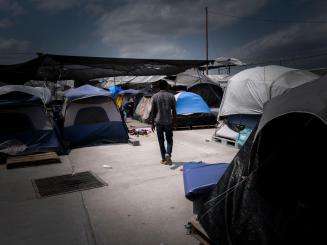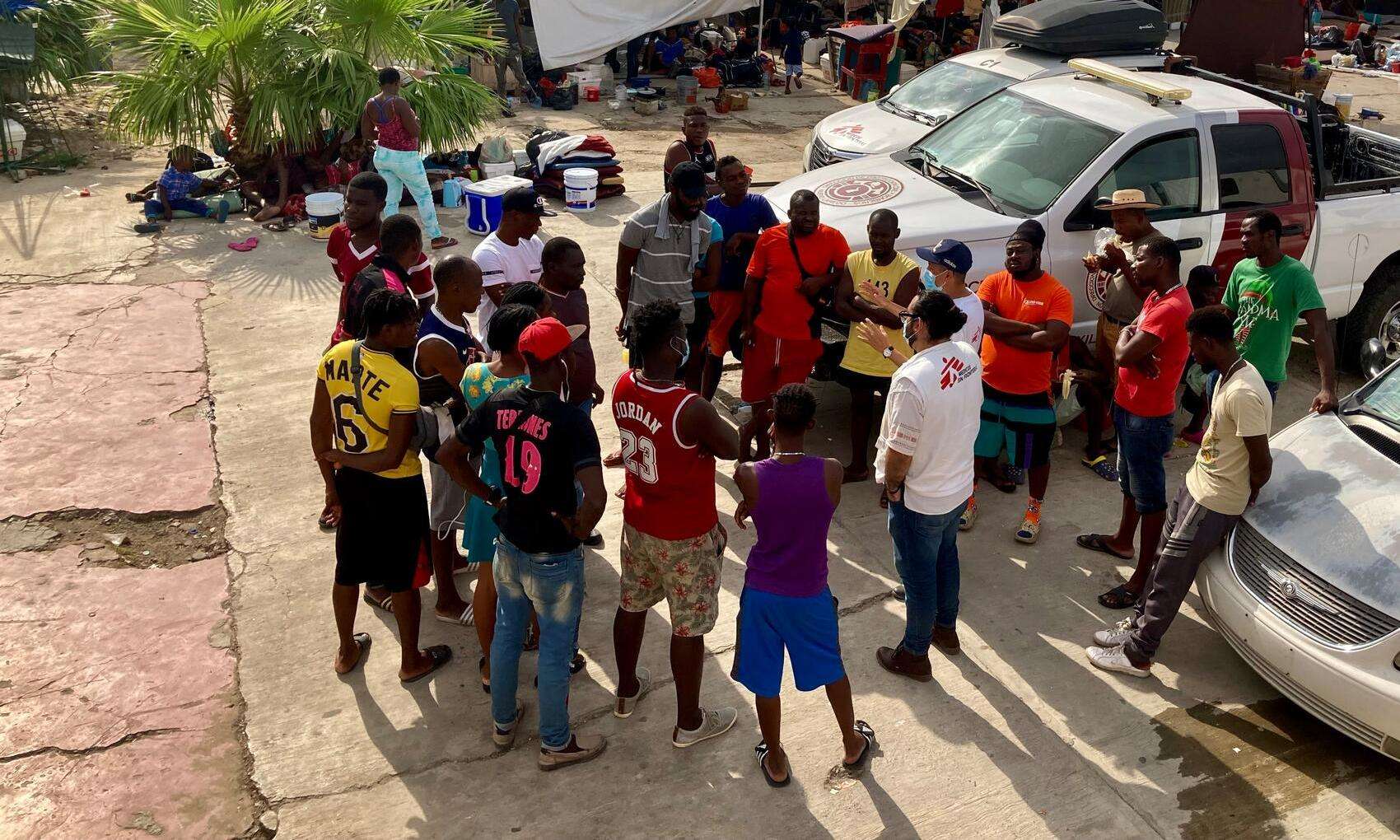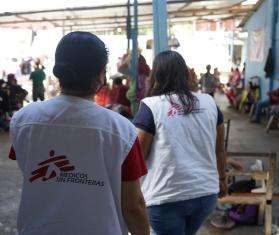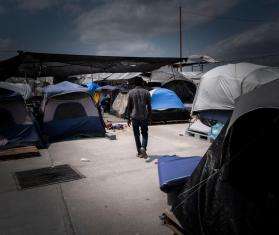This week, on May 11, the Title 42 rule will come to an end. Since it was first invoked in March 2020 in the early days of the COVID-19 pandemic, this public health order has been exploited to effectively close the US southern border to asylum seekers. This is more than just a legal matter.
Doctors Without Borders/Médecins Sans Frontières (MSF) teams help people along the treacherous migration routes through the Americas and up to Mexico-US border. Since Title 42 went into effect, we’ve spoken out over and over again about the dire health consequences of the rule and its misuse of public health concerns. This should be a moment to celebrate. Yet even with the expiration of the Title 42 rule, people seeking safety in the US will continue to face inhumane migration policies that put the health of vulnerable people at further risk.
What is Title 42?
Title 42 allows the government to block asylum seekers and authorizes rapid expulsions without due process under the guise of public health. Originally enacted in 1944 as part of the Public Health Service Act, the Trump administration used the COVID-19 public health emergency as a pretext to extend its application to the asylum system in March 2020. Since then, most people fleeing violence and persecution have not been able to seek asylum at the US border.
Has Title 42 been effective in curtailing migration?
As MSF has repeated time and again, highly restrictive migration measures do not stop migration. These harsh policies expose vulnerable people to more danger and often drive them to seek riskier pathways to safety. The intense pressures driving people to leave their homes far outweigh considerations of the risks of migration or likelihood of being allowed entry into the US.
How is Title 42 impacting people’s lives and living conditions?
MSF has been providing medical and psychosocial support along migration routes in Mexico and Central America for over a decade, witnessing the medical consequences of the poor conditions asylum seekers and other migrants must endure along the way, including freezing temperatures and crowded quarters accelerating the spread of disease. Title 42 has worsened these conditions by creating a bottleneck at the border, increasing the strain on care providers responding to the crisis. People expelled through Title 42 are often stranded in unsafe cities along Mexico's northern border, without access to shelter, food, medical care, and other basic services.
May 10 04:56 PM
US ends Title 42 only to roll out sweeping asylum restrictions
MSF teams are bracing for the human impacts.
Read More
How is MSF responding?
MSF teams are providing migrants and refugees with comprehensive primary health care, mental health, social services, and health promotion activities. Last year, we provided 44,388 primary health consultations, over 6,000 mental health consultations, and continue to provide care for survivors of sexual and gender-based violence.
Will the end of Title 42 improve conditions for asylum seekers?
While the end of Title 42 is good news, there are still major concerns about the fate of migrants in its wake. In its place, the Biden administration will roll out new asylum restrictions and revert to harsher existing immigration laws meant to deter people from migrating and seeking asylum at the US southern border. Crowding and inhumane conditions at holding facilities are likely to increase due to prolonged administrative processing time by U.S. border officials. Officials also expect more people trying to cross the border, which could put additional strain on asylum processing.
New asylum restrictions set to take effect after Title 42 expires, would make it more difficult for people to access asylum by requiring them to demonstrate "exceptionally compelling circumstances by a preponderance of the evidence.” Once it goes into effect, the number of migrants concentrated along the border and in locations throughout Central America is likely to grow, with limited local capacity to provide even the most basic services.
What can be done to protect asylum seekers and migrants?
Instead of pursuing harmful border policies, the Biden administration must prioritize rebuilding a safe and humane asylum system. Refugees and migrants in Mexico—and everywhere—should be treated with dignity and compassion, as human beings.



